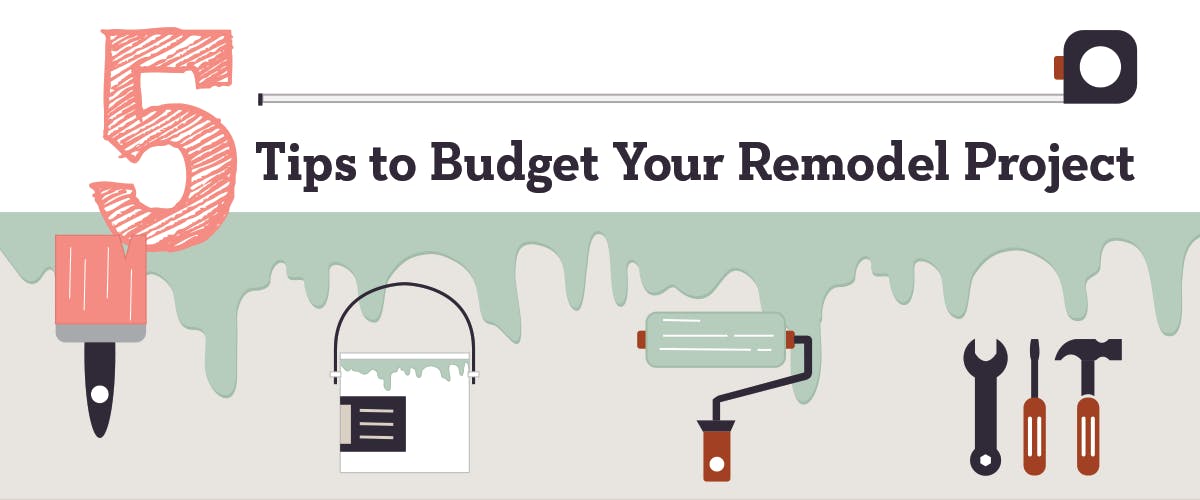We all like a change of scenery, especially when it comes to our homes. Whether it’s simply adding a different colour to a room or taking on a major remodel, it’s refreshing to make a change, and sometimes it can add value to your home. Regardless of the size of the project, there’s a lot to think about before you begin.
One of the most important things to consider is your budget. Are you going to take on some of the job yourself to save some money? I wanted to share a few more valuable ideas and tips for budgeting for your project. Check them out below.
1. Determine Where the Money Will Come From
Will you use savings? Or will you take out a home equity loan? Once you determine your source of funding, determine how much you want to spend on the project – and stick to that limit.
2. Set Your Priorities
Before you pull out a calculator, clarify your reasons for renovating. Divide those reasons into “wants” and “needs.” For example, reconfiguring your bathroom so that your current questionable electrical and plumbing will pass an inspection is a “need.” His-and-her water closets, a whirlpool tub, and built-in towel heaters are “wants.” Setting priorities will help you make decisions as you move through the renovation process.
3. Step Away From The Computer
Visit showrooms, model homes, and design stores in addition to checking out pictures online. Before investing in materials and appliances, be sure to see and feel them, or samples of them, in person.
4. DIY Or Contractor?
The biggest question to answer when creating your budget is deciding whether to do the work yourself or to hire a contractor. Doing the work yourself is usually less expensive – unless, of course, something (costly) goes wrong. Using a contractor, however, can mean your project is completed to professional standards and usually in a shorter time frame. Be sure to calculate the value of your time (and your back and knees) and the inconvenience of having a bathroom or kitchen out of use during the project when deciding whether to opt for DIY or a pro.
5. Expect The Unexpected
Whether you plan to do the work yourself or hire a contractor, add on an extra 15 to 20 percent of your total budget for unforeseen expenses. Added costs inevitably arise, especially if you’re dealing with an older home.
If you have questions or are looking for a good contractor, we’re connected with some of the best professionals in the business. Feel free to give us a call and we’d be happy to give you some recommendations.


